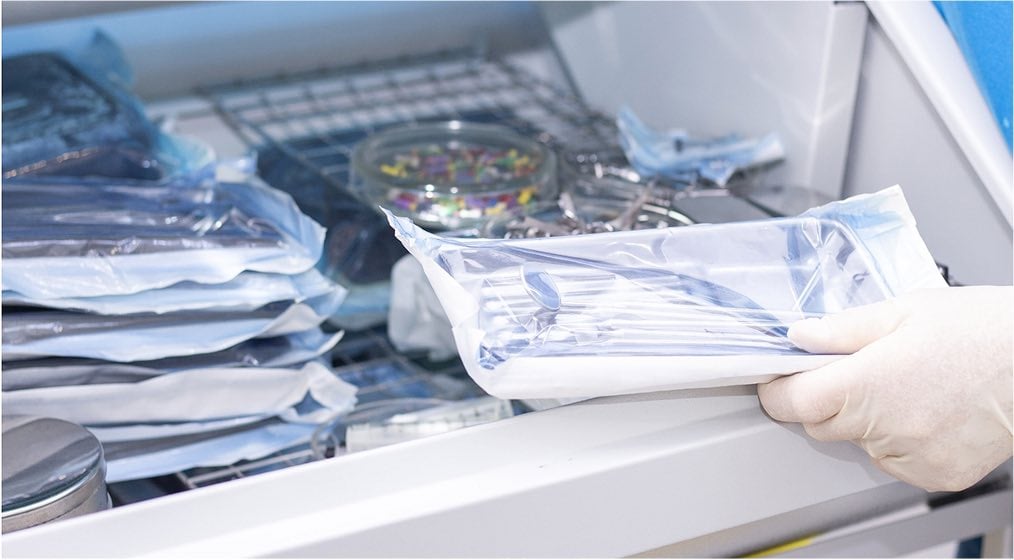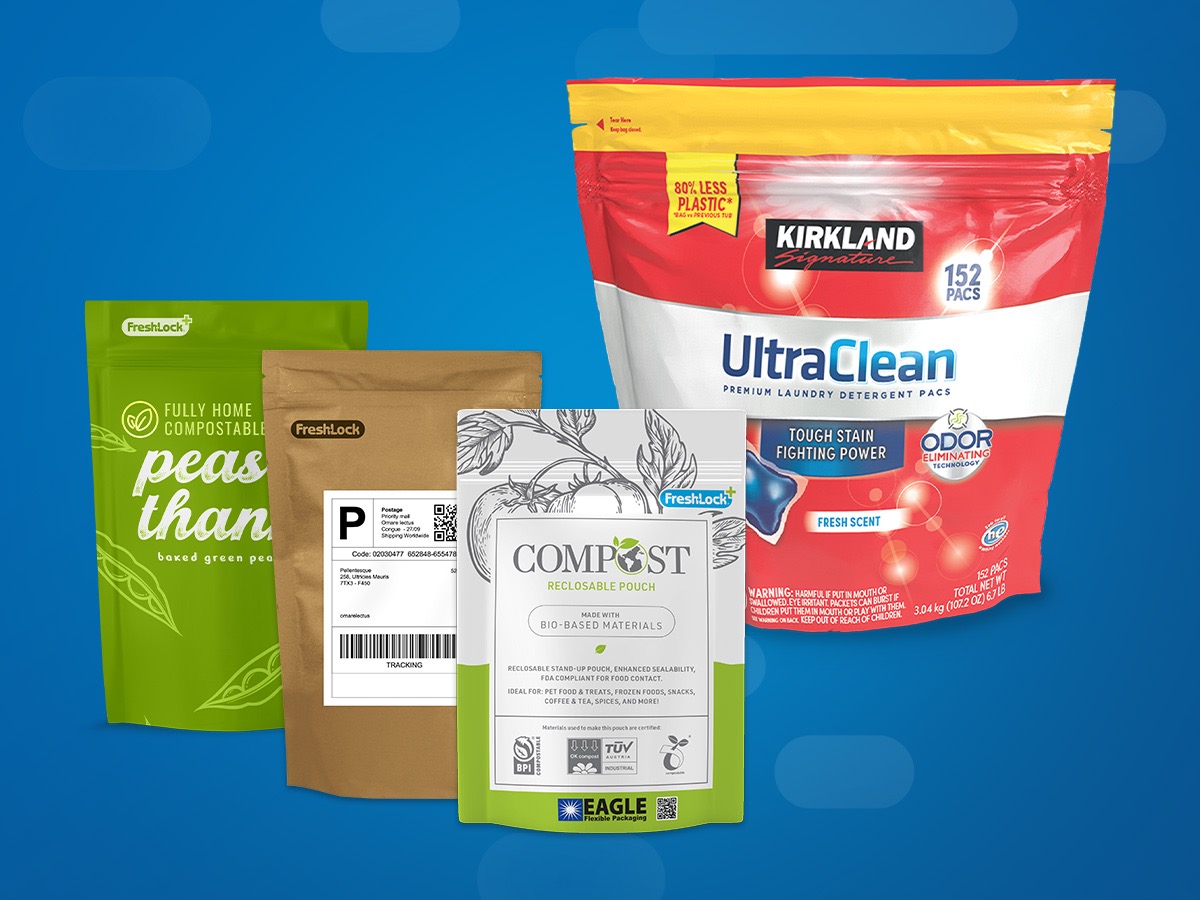
How Flexible Medical Packaging Can Support the Healthcare Industry
Packaging used in the healthcare industry is almost as important as the contents inside. The packaging, like its contents, must meet numerous performance requirements to ensure the safety and well-being of medical patients. Because of this, medical packaging has remained largely unchanged over the years despite existing challenges, some of which were revealed by a nurses’ panel discussion highlighting the changes and capabilities healthcare providers would like to see in the products they utilize every day.
This kind of feedback is invauable in developing solutions that help providers effectively care for their patients, and the time is right to start thinking beyond traditional packaging options. Here are a few of the healthcare industry’s biggest packaging pain points and ways in which flexible medical packaging can help address them.
Protecting Medical Supplies with Flexible Packaging
One of the biggest hurdles of medical packaging is standing up to sterilization processes, which is an absolute must in healthcare. Fortunately, flexible packaging holds up well under two of the most prominent sterilization agents for medical supplies: ethylene oxide (ETO) and gamma radiation.
Flexible packaging’s polyethylene structure gives it a unique breathability that’s suitable for the process of flushing ETO into the packaging and pulling it back out. Breathability is not a factor for gamma sterilization, but the packaging materials must pass through the sterilization process without becoming brittle or yellowed, making the strength and versatility of flexible packaging for medical equipment an excellent option.
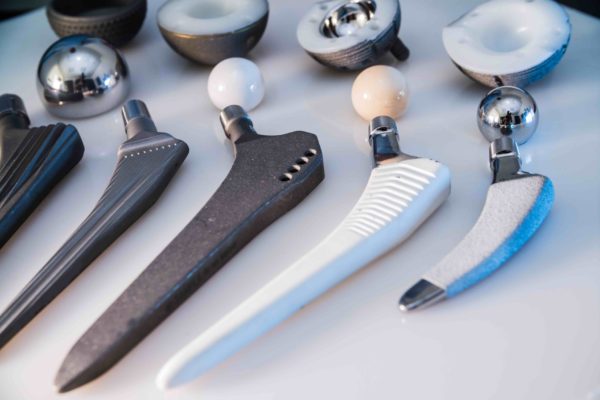
This pairing of strength and versatility also helps to ensure that the medical supplies within the package will remain protected until they are utilized. Flexible packaging provides puncture resistance and seal strength, important features for situations where healthcare products need to be shipped to medical facilities or homes. Surgical masks, gloves, medicines, and other medical products can all benefit from the durability of flexible packaging.
How Flexible Packaging Can Help Healthcare Worker Efficiency
When a sterilized product safely reaches the hands of a busy healthcare worker, the packaging it’s housed in should not slow them down. These workers must access medical supplies quickly, but gloved hands and the frequent need to hold several packages at once can make traditional healthcare packaging a deterrent to doing their job. Additionally, the tamper-evident stickers that serve an important purpose can also provide unwanted hassle, as workers must take the time to remove them.
Flexible medical packaging offers a number of easy-to-open features like sliders and zippers that allow for quick access. Fresh-Lock® Triple Lock Zippers offer easy opening and secure reclosing, with enhanced audible and tactile feedback. Their reliable seal helps block out potential contaminants, making it an ideal solution for protecting medical materials throughout the supply chain and ensuring they remain secure until use. The Fresh-Lock® Ergonomic Slider is also a good option for flexible medical packaging, as its contoured shape makes it easy to grip and slide for consistent opening and closing, ideal for busy, gloved hands.
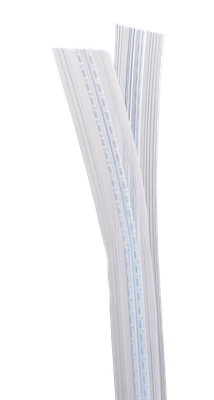
Fresh-Lock® Triple Lock Zipper
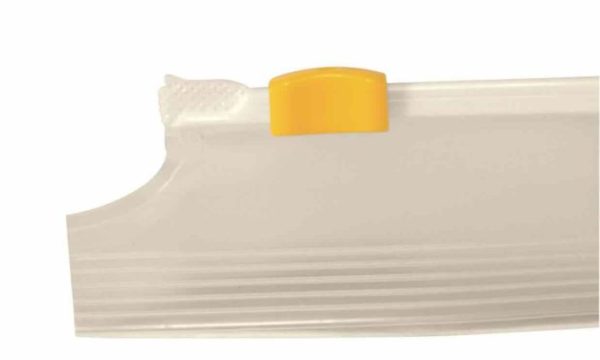
Slide-Rite® Ergonomic Slider
Another benefit of flexible packaging for healthcare is tear-away hoods that provide simple-to-remove yet effective tamper evidence. Strategic color usage also provides visual cues for where to open the package. Additionally, advancements in digital printing have allowed for pictures and diagrams that can simplify instructions for intuitive use. Digital printing also enables medical flexible packaging to include large expiration dates, table of contents, and other important identifiers that make the products stand out among the multitude of supplies in a hospital setting. Medical flexible packaging can even include windows that allow workers to easily see what’s in the package as opposed to reading what it contains.
How Flexible Packaging Helps Remove Secondary Medical Packaging
Because flexible packaging can provide clear product information, puncture resistance, and proper product protection, secondary packages or cartons are not required for the healthcare industry. In reality, healthcare workers are already discarding secondary packages to make room in their crowded storage spaces, but current internal pouches can’t be hung. Additionally, the secondary package often includes important external messaging about the medical product that is lost once the package is thrown away. Healthcare workers also run the risk of losing instruction cards that were contained in the secondary package—whereas with flexible packaging, all necessary product information can stay with the product until use.
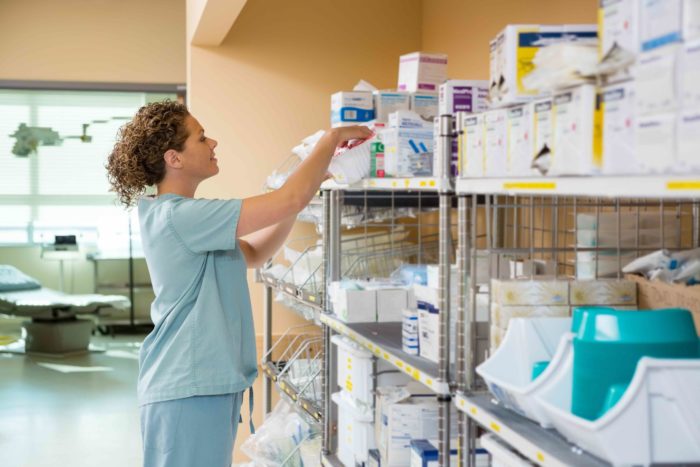
Medical flexible packaging can be designed to hang or stand up for easy, organized storage. When designed with the end user in mind, medical flexible packaging saves time when searching for, identifying, and opening a package.
Sustainable Healthcare Packaging Materials
The removal of multiple packaging components helps with another problem facing the healthcare industry: sustainability.
According to the AMA Jorunal of Ethics, U.S. healthcare facilities generate 14,000 tons of waste daily, and 20 to 25% of that waste is plastic. Unfortunately, most of this medical packaging does not get recycled and instead ends up in landfills.
Mono-material flexible packaging can help reduce the landfill burden without compromising package functionality. By eliminating unnecessary packaging materials and providing an option that can support a circular economy, the right flexible packaging material options can help healthcare facilities with these sustainability hurdles.
While there are still infrastructure challenges for medical packaging, the HPRC is exploring hospital waste diversion strategies and encouraging manufacturers to consider recycling potential at the design stage. For a recycle-ready flexible package that is convenient and easy to handle, any of our Fresh-Lock® Polyethylene Sliders make a great choice. In addition to our ergonomic slider, Child-Guard® Slider is a flexible packaging innovation that helps keep kids and seniors safe. Now available with a track option made from at least 25% post-consumer recycled materials, the healthcare facilities can ensure that medications and equipment are packaged sustainably while still functioning to keep patients safe.
Implementing Flexible Packaging for Medical Equipment
Despite these benefits, flexible packaging is growing slower in this industry than it is in food, pet food, and other consumer markets like gardening. As mentioned earlier, intensive package requirements for medical products have kept many in the market from pursuing options outside of traditional, proven packaging. However, the medical industry can take cues from the food industry, which is faced with similar packaging challenges.
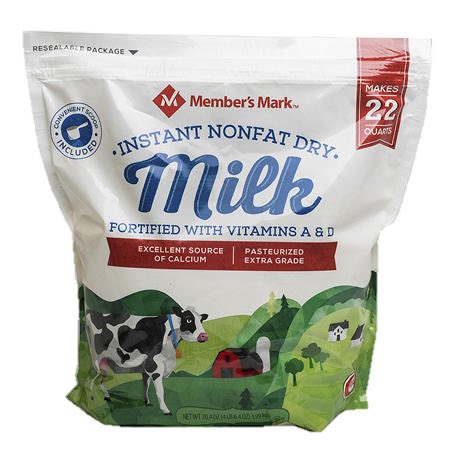
Sterilization, puncture resistance, containment, storage efficiency, and clear labeling are all necessary for proper food packaging. Even though flexible food packaging is held to many of the same FDA (Food and Drug Administration) standards as medical packaging, it continues to grow in use and applications.
The process for developing new healthcare packaging that meets safety standards can be lengthy due to testing and validation requirements. However, flexible packaging can minimize these lead times, drive down packaging material and equipment costs, and offer sustainability benefits throughout its lifecycle, making it a leading alternative to healthcare’s packaging solutions.
Create Your Own Healthcare Flexible Packaging Solution
Medical flexible packaging options and closures are ready for use in the healthcare industry, and now is a terrific time to balance user-friendliness, product and user safety, and sustainability. Start packaging development as early in your product’s development timeline as possible and be sure to work with experienced packaging professionals who know the testing procedures and FDA requirements to guarantee your healthcare packaging materials are properly aligned with industry standards.
Even if you don’t see a medical flexible packaging and closure option that is right for you, we can collaborate with you to understand what your healthcare packaging must accomplish in order to develop the best solution for your needs.
If you are ready to explore flexible packaging for your medical equipment, contact the Fresh-Lock team today.
This blog was originally published on 06/07/2021 but updated and refreshed on 03/08/2024

 Back to Blog
Back to Blog